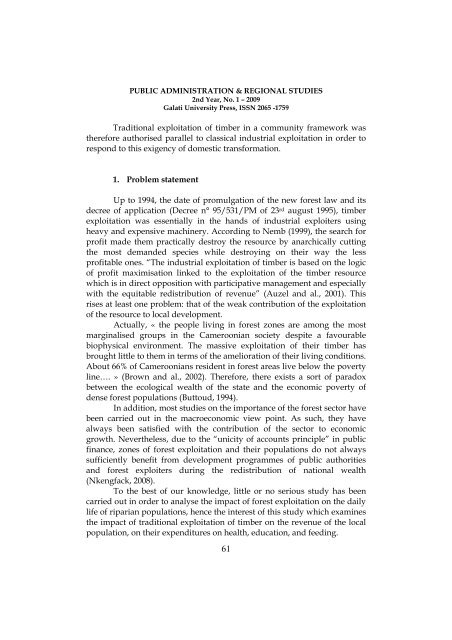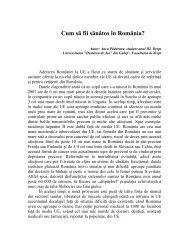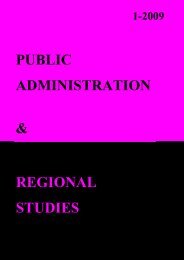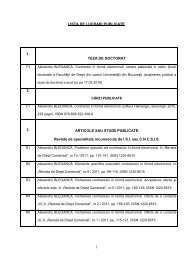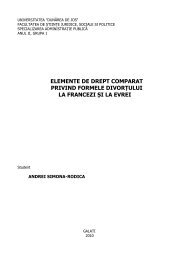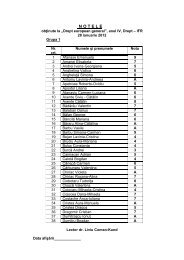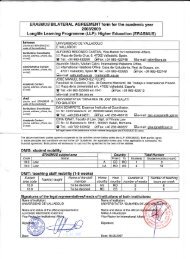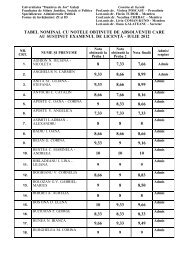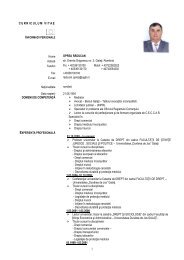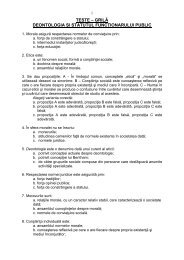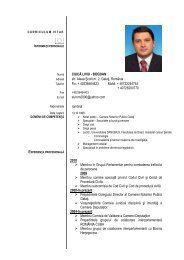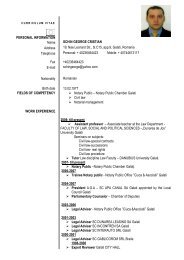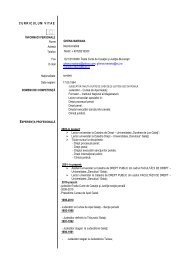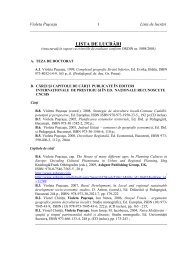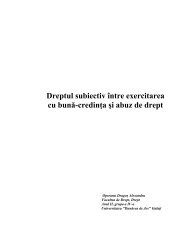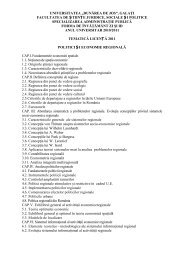regional studies public administration - Facultatea de Drept ...
regional studies public administration - Facultatea de Drept ...
regional studies public administration - Facultatea de Drept ...
You also want an ePaper? Increase the reach of your titles
YUMPU automatically turns print PDFs into web optimized ePapers that Google loves.
PUBLIC ADMINISTRATION & REGIONAL STUDIES<br />
2nd Year, No. 1 – 2009<br />
Galati University Press, ISSN 2065 -1759<br />
Traditional exploitation of timber in a community framework was<br />
therefore authorised parallel to classical industrial exploitation in or<strong>de</strong>r to<br />
respond to this exigency of domestic transformation.<br />
1. Problem statement<br />
Up to 1994, the date of promulgation of the new forest law and its<br />
<strong>de</strong>cree of application (Decree n° 95/531/PM of 23 rd august 1995), timber<br />
exploitation was essentially in the hands of industrial exploiters using<br />
heavy and expensive machinery. According to Nemb (1999), the search for<br />
profit ma<strong>de</strong> them practically <strong>de</strong>stroy the resource by anarchically cutting<br />
the most <strong>de</strong>man<strong>de</strong>d species while <strong>de</strong>stroying on their way the less<br />
profitable ones. “The industrial exploitation of timber is based on the logic<br />
of profit maximisation linked to the exploitation of the timber resource<br />
which is in direct opposition with participative management and especially<br />
with the equitable redistribution of revenue” (Auzel and al., 2001). This<br />
rises at least one problem: that of the weak contribution of the exploitation<br />
of the resource to local <strong>de</strong>velopment.<br />
Actually, « the people living in forest zones are among the most<br />
marginalised groups in the Cameroonian society <strong>de</strong>spite a favourable<br />
biophysical environment. The massive exploitation of their timber has<br />
brought little to them in terms of the amelioration of their living conditions.<br />
About 66% of Cameroonians resi<strong>de</strong>nt in forest areas live below the poverty<br />
line…. » (Brown and al., 2002). Therefore, there exists a sort of paradox<br />
between the ecological wealth of the state and the economic poverty of<br />
<strong>de</strong>nse forest populations (Buttoud, 1994).<br />
In addition, most <strong>studies</strong> on the importance of the forest sector have<br />
been carried out in the macroeconomic view point. As such, they have<br />
always been satisfied with the contribution of the sector to economic<br />
growth. Nevertheless, due to the “unicity of accounts principle” in <strong>public</strong><br />
finance, zones of forest exploitation and their populations do not always<br />
sufficiently benefit from <strong>de</strong>velopment programmes of <strong>public</strong> authorities<br />
and forest exploiters during the redistribution of national wealth<br />
(Nkengfack, 2008).<br />
To the best of our knowledge, little or no serious study has been<br />
carried out in or<strong>de</strong>r to analyse the impact of forest exploitation on the daily<br />
life of riparian populations, hence the interest of this study which examines<br />
the impact of traditional exploitation of timber on the revenue of the local<br />
population, on their expenditures on health, education, and feeding.<br />
61


